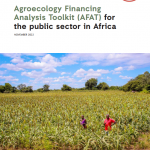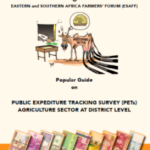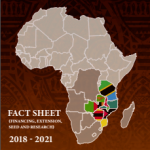SEEDS: Farmers fear disappearance of indigenous seed varieties
.jpg)
22/10/2013
Farmers are reporting that indigenous seeds are disappearing in many parts of the country, causing concern that if no action is taken, many of the varieties would soon be extinct.
The workshop participants observed that many local seeds are currently being gradually replaced by conventional high breed seeds.
Citing an example, the Zonal Research Coordinator for the Uyole Agricultural Research Institute in Mbeya, Benjamin Kiwovele, said the indigenous Loti potatoes which were found in Makete District are gradually being replaced by CIP-potatoes, named after the International Potatoes Centre in Peru.
Further, he said, local maize seeds which used to be grown in the Southern Highlands, like Ibandawe and Nchancha, are also about to disappear.
These are being replaced by conventional high breeds such as SEEDCO, PIONEER, UH615 and HB614, to name but a few. With that being the case, he pointed out the need to protect and promote local seeds noting that the local seeds too are resistant to diseases and pests and they too bear high nutrition quality.
Moreover, he pointed out that they are much better liked by farmers because of their milling quality, taste, early maturity and aroma.
Commenting on farmers’ practices and seed systems, the workshop facilitator, Baruani Idd from the Dodoma based INADES Formation said local seeds are also much affordable for the small scale farmers.
As an example he pointed out the use of Ibandawe, a local favorite seed, sold at 1,000/= compared to 4,000/= per kilogram sold for improved or certified seeds.
“Storing Ibandawe seeds is also manageable for farmers as they mostly use indigenous expertise in seed preservation like using a local hem known as Isogoyo, Tephrosia, Utupa or even ashes,” he explained pointing out that the new high breed seeds require other methods of preservation not readily available to the farmers.
He said a study conducted recently also blamed the loss of the local seeds to the vastness of the country and poor infrastructure.
He explained that the situation puts the smallholder farmers at a disadvantage with regard to time and availability of seeds as a whole.
Opening the workshop earlier, the ESAFF Regional Chairman, Moses Shaha, called on researchers, farmers, government representatives and non-government organisations to make sure that they unite and commit themselves to agricultural research for the country’s development, saying: “Our presence here as stakeholders is for us to explore challenges and opportunities, especially those faced by the small scale farmers,”
The three-day workshop brought together various stakeholders of the forum including small scale farmers, researchers, NGOs and the media.






















